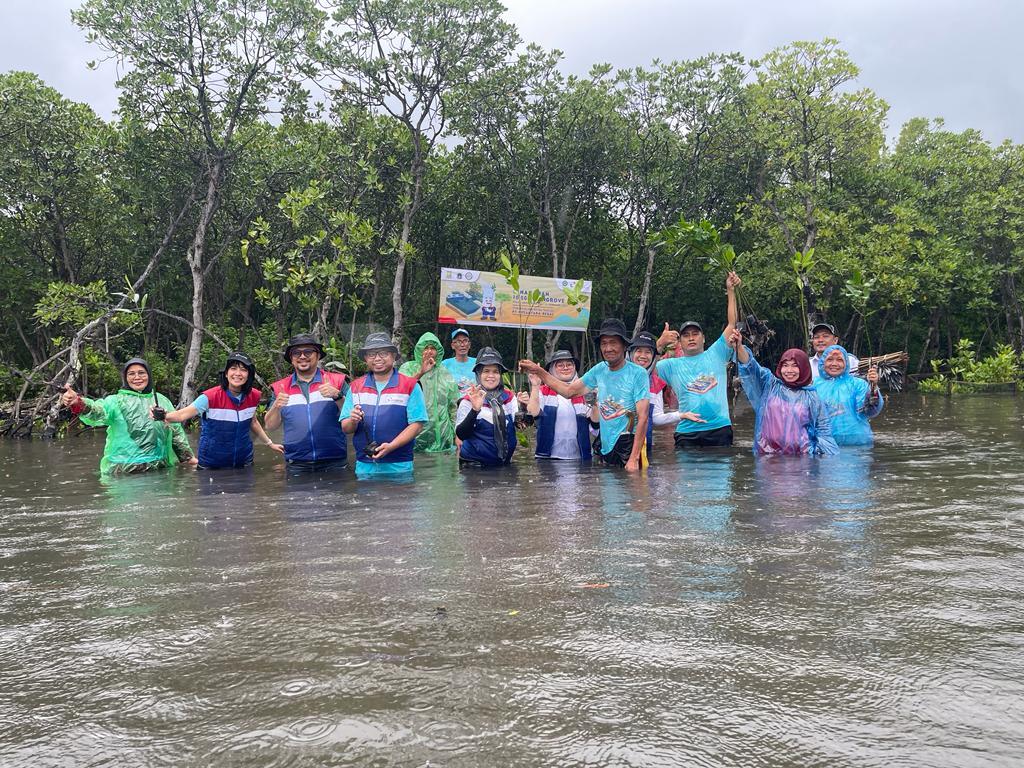
10,000 Nusantara Regas' Mangrove for Untung Jawa Island Environmental Preservation
Kepulauan Seribu, February 25, 2023 – The Environmental, Social, and Governance (ESG) principle application is PT Nusantara Regas' (NR) commitment to undertaking every corporate action. Wednesday (22/02), Nusantara Regas Officer began planting 10,000 mangrove seedlings on the coast of Untung Jawa Island, Kepulauan Seribu. It is NR's legitimate action in sustainable efforts to protect the environment.
The mangrove planting was carried out by Nusantara Regas with local government representatives, the Untung Jawa Island Tourism Awareness Youth Group, and community representatives. It is hoped that the 10,000 mangrove planting will have a positive impact on the environment, such as reducing abrasion, absorbing air pollution, and creating a biodiversity habitat for small marine animals. "This is Nusantara Regas' CSR ongoing commitment to environmental sustainability, especially in the area closest to the operational area," said the Head of HSSE Department of Nusantara Regas, Erwin Jonathan. Erwin added that this activity was also part of a series of OSH month events commemorated from January to February.
Nusantara Regas has planted 160,000 mangroves in the company's operational areas. "In principle, we support the community's progress, especially around the operational area. We hope that the planted mangroves will grow and develop. Therefore, in addition to environmental sustainability, they will also provide added economic value in the tourism sector," added Corporate Secretary of NR, Ratna Dumila.
To keep the mangrove plants growing, NR cooperates with the Tourism Awareness Youth Group to look after and care for the plants. Mangrove plants can reduce sea abrasion and also tsunami wave disaster's magnitude.
Moreover, based on several studies, it is estimated that the average ability of mangroves to absorb carbon is around 0.5-2.0 tons of carbon per hectare per year. However, this number can vary depending on the mangrove type, environmental conditions, and other factors.
If it is assumed that the 10,000 mangrove plants are planted in an area of one hectare, the total carbon that can be reduced in a year is around ten tons. This effort follows the Government's target, which proclaims Indonesia to reach Net Zero Emissions in 2060 or sooner.**